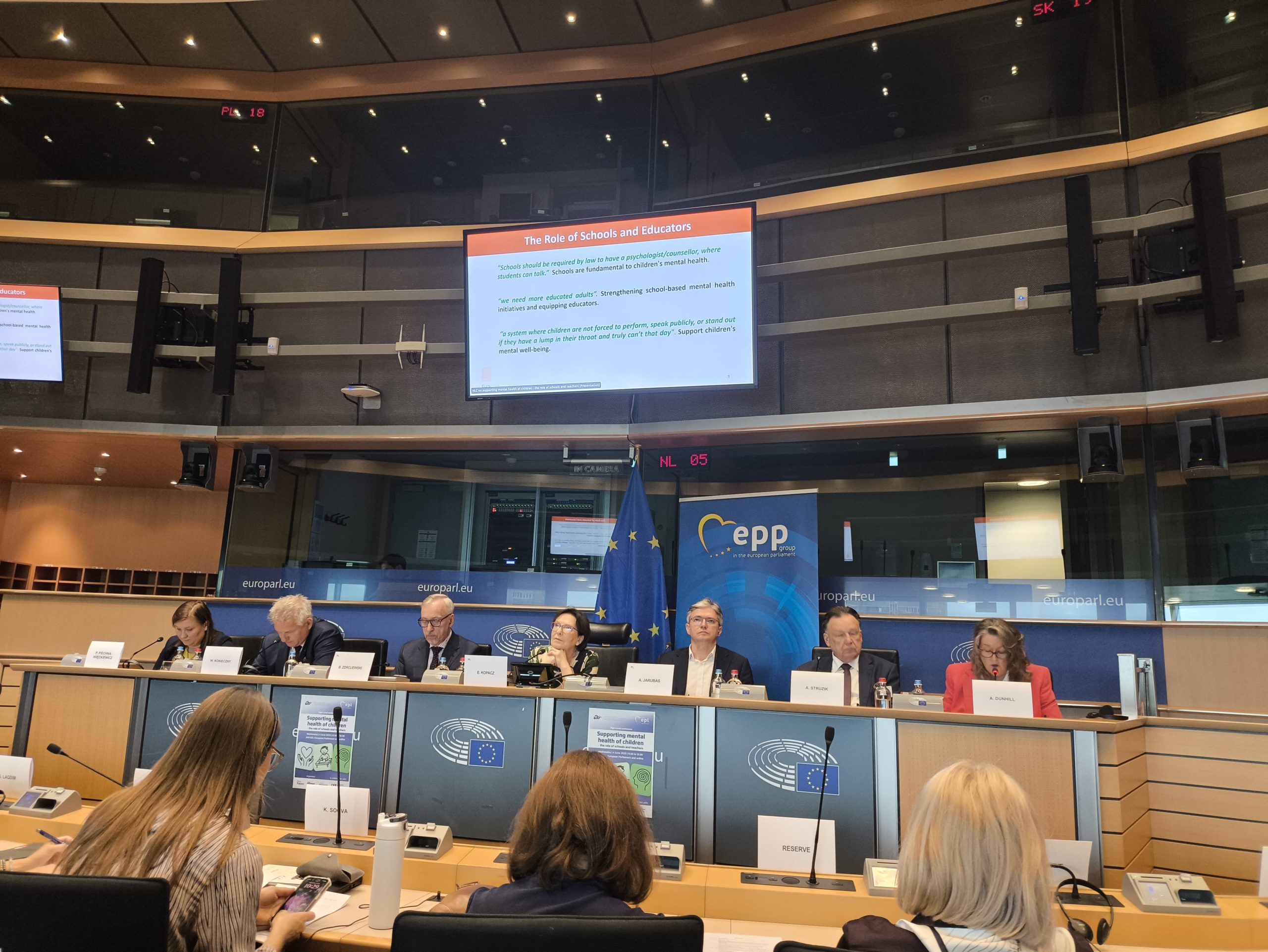Children’s mental health must become a priority for all Member States
Increasing poor mental health among children and young people necessitates a stronger and distinct approach compared to adult mental health with targeted interventions at EU and Member States levels.
On 26 April, Eurochild took part in a hybrid roundtable discussion organised by EuroHealthNet on The European Semester: a tool to embed health, equity, and wellbeing across the EU. One of the key focuses of the discussion has been the importance of promoting mental well-being. Indeed, the accumulation of recent crises has exacerbated the pre-existing and created new risk factors for poor mental health. Despite this, in the majority of cases, policies to address mental health issues continue to be focused on individuals rather than on addressing the overall underlying causes that lead to experiencing poor mental health. In addition to this, these policies do not take into account the need for targeted interventions for different parts of the population.
Building up on this, during the discussion, as Eurochild, we raised the issue of the increasing poor mental health among children and young people; this definitely necessitates a stronger and distinct approach compared to adult mental health with targeted interventions. And, although several post-pandemic efforts have focused on tackling the impacts on children’s well-being, their mental health seems not to be a priority for many Member States.
Indeed, European Semester recommendations do not include children or children’s mental health specifically.
Considering this, it is clear that the European Semester needs to better guide Member States in establishing legislative frameworks integrated into the EU’s overarching and comprehensive mental health strategy which also implies having specific recommendations on children’s mental health.
With respect to this, Eurochild welcomes the long-awaited European Commission COMMUNICATION on a comprehensive approach to mental health published on 7 June which acknowledges that Europe is witnessing a worsening of the mental health of younger generations and emphasises the importance of boosting the mental health of children and young people.
In summary, key pillars and complementary policies to develop better prevention and treatment services are the European Child Guarantee, the EU commitments to reaching climate neutrality by 2050 and creating a better Internet for Kids including Digital Services Act and Safer Internet Centers. In line with the EU Strategy on the Rights of the Child, this communication features a 2024 initiative on integrated child protection systems, developing the mechanisms to foster child participation and a more effective fight against sexual abuse of children. Schools and pre-schools play a pivotal role in the mental health of children therefore the implementation of Pathways to School Success will be enhanced by a mental health component.
The European Commission also encourages Member States to identify children as a priority target group in their national mental health strategies and to provide them with better access to mental health services, while addressing the impact of other health determinants, such as economic, commercial, social, and environmental issues. In this regard, we particularly welcome the mention of the monitoring of progress through the European Semester.
While we consider this communication an overall good step forward, we still believe that further commitment is needed to support the implementation of measures to boost children’s mental health at the European and Member State level.
Find out more:
- Early Childhood: First Years First Priority Response to the Commission’s Communication on a Comprehensive Approach to Mental Health
- Read our recommendations on (In)visible children Report
- Read the full EuroHealthNet roundtable discussion report
- Read the European Commission’s comprehensive approach to mental health.





